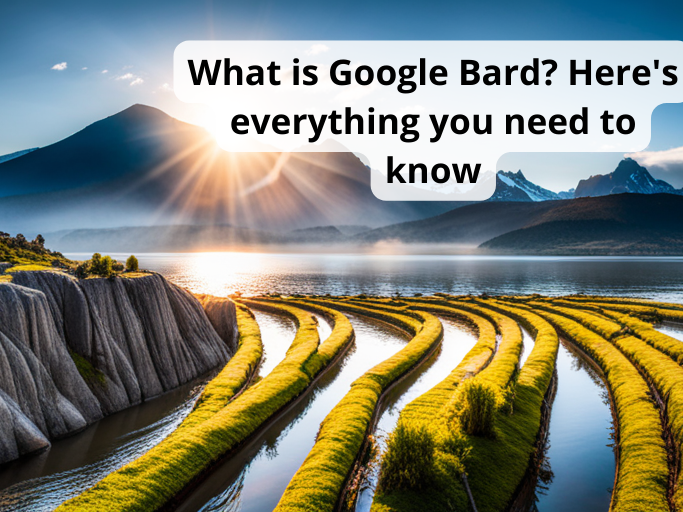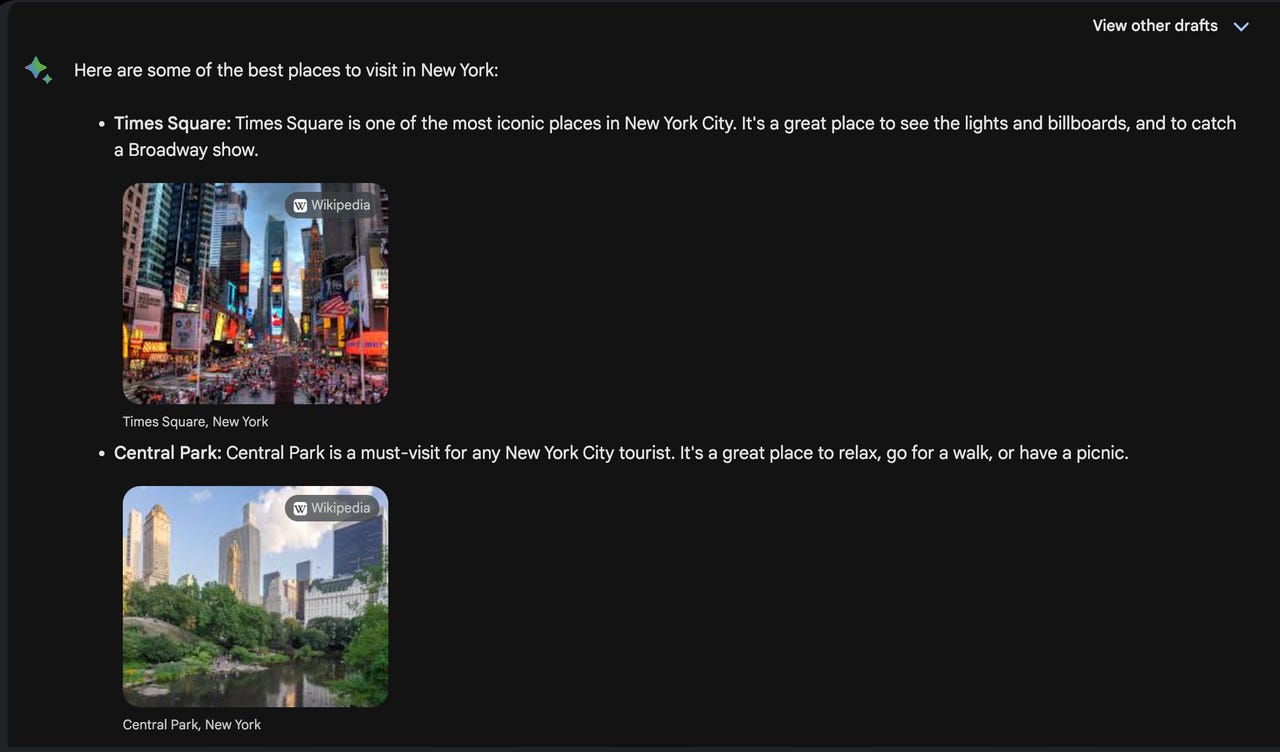
Bard is Google's experimental, conversational, AI chat service. It is meant to function similarly to ChatGPT, with the biggest difference being that Google's service will pull its information from the web.
When was Google Bard announced?
Bard was unveiled on February 6 in a statement from Google and Alphabet CEO Sundar Pichai. Even though Bard was an entirely new concept, the AI chat service that was launched was powered by Google's Language Model for Dialogue Applications (LaMDA), which was unveiled two years prior.
Google Bard is now powered by Google's very own and most advanced large language model (LLM) PaLM 2, which was unveiled at Google I/O 2023.
PaLM 2 -- a more advanced version of PaLM, which was released in April 2022 -- will allow Bard to be much more efficient and to perform at a higher level.
The initial version of Bard used a lightweight model version of LaMDA, because it required less computing power and could be scaled to more users.
LaMDA was built on Transformer, Google's neural network architecture that it invented and open-sourced in 2017. Interestingly, GPT-3, the language model ChatGPT functions on, was also built on Transformer, according to Google.
Google's decision to use its own LLMs, LaMDA and PaLM 2, was a bold decision from Google since some of the most popular AI chatbots right now, including ChatGPT and Bing Chat, use a language model in the GPT series.
At Google I/O, the tech giant announced there would no longer be a waitlist for Bard, meaning it would be open to the general public.
Google Bard's previous waitlist opened up on March 21, 2023, and the tech giant granted access to limited numbers of users in the US and UK on a rolling basis.
What languages is Bard available in?
At Google I/O, Google announced that Bard will support Japanese and Korean, and is on track for supporting 40 more languages soon.
Does Google include images in its answers?
Yes, in late May, Bard was updated to include images in its answers. The images are pulled from Google and shown when you ask a question that can be better answered by including a photo.
For example, when I asked Bard, "What are some of the best places to visit in New York?", it provided a list of different places and included photos for each.

Google's Bard had a rough launch, with a demo of Bard delivering inaccurate information about the James Webb Space Telescope (JWST).
At launch, Google tweeted a demo of the AI chat service in which the prompt read, "What new discoveries from the James Webb Space Telescope can I tell my 9-year-old about?" Bard replied: "JWST took the very first pictures of a planet outside of our own solar system." People quickly noticed that the output response was factually incorrect.
"This highlights the importance of a rigorous testing process, something that we're kicking off this week with our Trusted Tester program," said a Google spokesperson to ZDNET in a statement.
The actual performance of the chatbot also led to lots of negative feedback.
In ZDNET's experience, Bard also failed to answer basic questions, had a longer wait time, didn't automatically include sources, and paled in comparison to more established competitors. Google CEO Sundar Pichai called Bard "a souped-up Civic" compared to ChatGPT and Bing Chat.
Before Bard was released, Google's LaMDA came under fire as well. As ZDNET's Tiernan Ray reports, shortly after LaMDA's publication, former Google engineer Blake Lemoine released a document in which he shared that LaMDA might be "sentient." This controversy faded after Google denied the sentience and put Lemoine on paid administrative leave before letting him go from the company.
Google's switch from LaMDA to PaLM 2 should help mitigate many of Bard's current issues.
Let's roll back to late November 30, 2022, when ChatGPT was released. Less than a week after launching, ChatGPT had more than one million users. According to analysis by Swiss bank UBS, ChatGPT became the fastest-growing 'app' of all time. Other tech companies, including Google, saw this success and wanted a piece of the action.
In the same week that Google unveiled Bard in February, 2023, Microsoft unveiled a new AI-improved Bing, which runs on a next-generation OpenAI LLM customized specifically for search.
Google has developed other AI services that have yet to be released to the public. The tech giant typically treads lightly when it comes to AI products and doesn't release them until it's confident in a product's performance.
For example, Google has developed an AI image generator, Imagen, which could be a great alternative to OpenAI's DALL-E when released. Google also has an AI music generator, MusicLM, which Google says it has no plans to release at this point.
In a recent paper discussing MusicLM, Google recognized the risk that these kinds of models could pose to the misappropriation of creative content and inherent biases present in the training that could affect cultures underrepresented in the training, as well fears over cultural appropriation.
